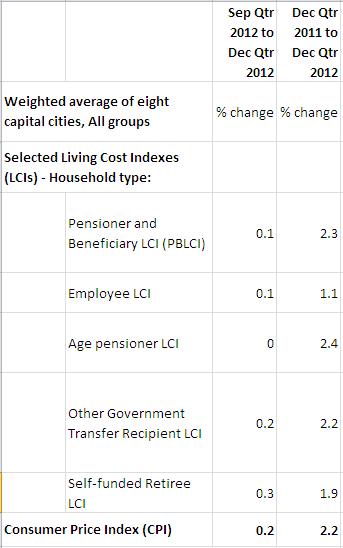
The start of a New Year often spells salary renegotiations – but if employees are citing the cost of living as a bargaining chip, you may have cause to cut it from the conversation.
The start of a New Year often spells salary renegotiations – but if employees are citing the cost of living as a bargaining chip, you may have cause to cut it from the conversation.
Despite anecdotal evidence that the cost of living is continuing to skyrocket – according to the latest figures from the Australian Bureau of Statistics (ABS), the average price of consumables for employees rose by just 1.1% in 2012.
The consumer price index (CPI) showed a rise of 2.2% in 2012, yet key figures from December compiled by the ABS showed that employees experienced average across-the-board price rises of just 1.1%.
The ABS audits cost-of-living indices across five household types, namely: employee, age pensioner, self-funded retiree, pensioner and beneficiary and other government transfer recipient. The living cost indexes (LCI) have been specifically designed to answer the question, “By how much would after tax money incomes need to change to allow households to purchase the same quantity of consumer goods and services that they purchased in the base period?”
Overall, ‘employee’ households fared the best, experiencing the lowest increase in the cost of living.
